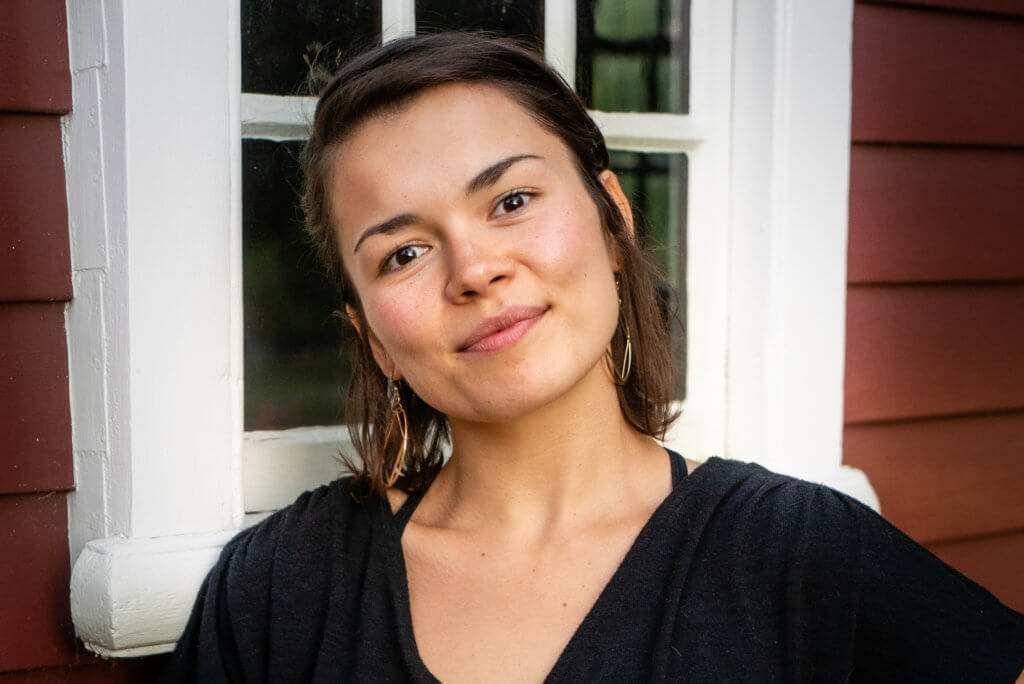Episode
Highlights

Ana and Enrique in conversation | Photo: Pearl Marvell
GETTING POLITICAL
“I realized that even here in Providence, even here in Rhode Island, and in our own nation, right, we have a lot of poverty… We have systems put in place that keep a lot of marginalized people oppressed and poor.”
—ENRIQUE SÁNCHEZ
“I started getting involved in political campaigns in Mexico, in Puebla. So all of that I picked up, and I brought back here.”
—ENRIQUE SÁNCHEZ
VACCINE ACCESS FOR THE UNDOCUMENTED
“I don’t know how many times I’ve encountered folks who are undocumented… and are hesitant to go get a vaccine because of the worriedness of having legal status. You know, to this day, there are a lot of people who, who think that if you get vaccinated, you know, you have to present some sort of documentation. And that’s not the case.”
—ENRIQUE SÁNCHEZ
“I’m a person that always has to stick with folks fighting against oppressive systems and against environmental injustices and fighting for justice.”
—ENRIQUE SÁNCHEZ

Ana and Jess Brown from night two of Capture The Block | Photo: Pearl Marvell
WHEN COVID GOT REAL
“I was like, ‘No, it’s not gonna happen to us. It’s not gonna happen to us.’ And when they closed the airports down, I was at the Hot Club, and my friend was like, ‘I think this thing is real, yo.'”
—JESS BROWN
“I’m on a college campus. So school shut down. That’s when it was real. Because it’s like we had evacuated our building, our students were trying to pack they’re freaking out. I’ve got students who are international, who literally can’t get home. So they’re moving from door to door, we had to go to triage mode, because we still had a job to do.”
—JESS BROWN
SELF CARE
“I had to go to therapy. That’s how I got through because my students were struggling really bad. And then with if anyone who works at a school, they’ve not asked us how we’re doing. They, you know, they asked about the students, but they weren’t asking about us.”
—JESS BROWN
ART AND TEACHING AS PROTEST
“I need to be in a street. I need to be taking action.”
—JESS BROWN
HISTORY AND TRUTH TELLING
“So all these schools, especially in the South that are like, ‘We’re gonna ban critical race theory!’ Or you could just call it history?”
—JESS BROWN

After the conversations, Big Nazo and Robertico y su Alebreke came out to party | Photo: Erin X Smithers
Episode
Notes
This project was brought to you through the Rhode Island Council for the Humanities’s Culture is Key initiative and a partnership with the Wilbury Theatre Group, find out more here.
- Black Lives Matter RI PAC
- ONA Vecinos de Olneyville
- Jess Brown’s Website
- See “the women” by jess brown and mary beth meehan
- Haus of Glitter’s latest performance
- follow Enrique on social media: @enriquesanchez7
- follow Jess on social media: @theladyjbrown

